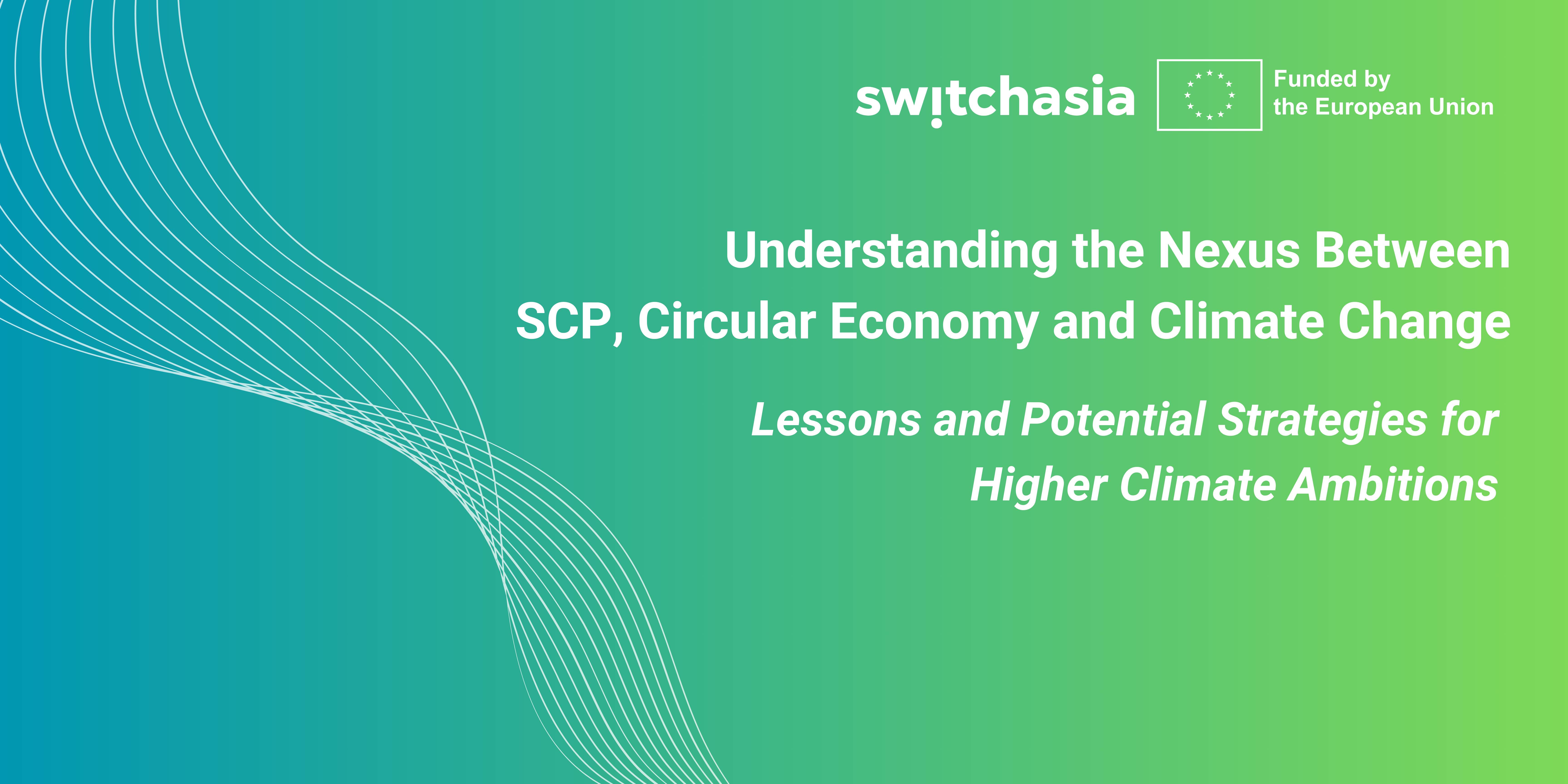
When: 15 February 2024 I Time: 15:30-17:15 (Bangkok) I Watch the recording HERE
Introduction
The SWITCH-Asia Policy Support Component (PSC) has a primary objective of advancing Sustainable Consumption and Production (SCP) efforts by amplifying and integrating SCP policies across 42 countries. These countries are spread across a wide geographical region encompassing the Middle East, Central Asia, South Asia, Southeast Asia, and the Pacific. The SWITCH-Asia PSC is built upon the solid foundation of the successful SWITCH-Asia programme, which has a history of providing effective technical assistance. Furthermore, it establishes crucial connections with the SWITCH-Asia grants component and aligns with the programmes and priorities of European Union Delegations (EUDs). The PSC's adaptable and demand-driven interventions, coupled with its mandate to encourage cooperation, enhance networking, and create a platform for knowledge exchange, position it favourably to address the triple planetary crises and meet international commitments. These commitments encompass the Sustainable Development Goals (SDGs) and the Paris Agreement, underscoring the Program's commitment to a sustainable future.
The ongoing phase of the SWITCH-Asia programme places a notable emphasis on the intersection between Sustainable Consumption and Production (SCP) and climate change, particularly focusing on the connections between materials and climate. The program is actively implementing and concurrently developing several Technical Advisories (TAs) in collaboration with the targeted countries in this context.
Background
Unsustainable consumption and production patterns are at the heart of the triple planetary crises, which include climate change, biodiversity loss, and pollution. The scientific community has firmly established the connection between climate change and material consumption. According to the 2019 Global Resource Outlook report by the International Resource Panel (IRP), our global population has doubled, material extraction has tripled, and gross domestic product has quadrupled in the past five decades. There has been a noticeable acceleration in the extraction and utilization of natural resources over the last twenty years, which has been responsible for about half of the effects observed in climate change. However, it's crucial to recognize that the connections between materials and climate change remain largely unexplored within the realm of climate change strategies and actions.
The 6th Assessment Report from the Intergovernmental Panel on Climate Change (IPCC) has once again sounded the alarm for global policymakers, emphasizing the urgent need to prevent the Earth's temperature from reaching dangerous levels. The collective global inaction in addressing the challenges posed by climate change has compelled humanity to pursue more rapid and ambitious climate actions. The recently published Global Stocktake (GST) report, as part of the Paris Agreement under the United Nations Framework Convention on Climate Change (UNFCCC), has concluded that, based on current Nationally Determined Contributions (NDCs), there is a significant emissions gap of 20.3–23.9 Gt CO2 equivalent by 2030 to stay on track with limiting global warming to 1.5°C. The trajectory of this shortfall in ambition is pointing towards a potential temperature rise of 2.8°C by the end of the century. Even if the current NDC targets are fully implemented, it can only limit the temperature increase to 2.4-2.6°C by the century's end, as highlighted in the 2022 UNEP Emission Gap Report.
The UNFCCC GST report also underscores that achieving net-zero emissions will vary from country to country, necessitating a comprehensive, nationwide effort in all countries to chart pathways towards net-zero CO2 or greenhouse gas (GHG) emissions. While these steps are critical for GHG mitigation, it's essential to ensure a broader "social transformation" to guarantee that investments in these initial measures yield the desired results. Given the pressing need for increased ambition in climate action, it becomes crucial to leverage all available avenues without compromising sustainable development.
Sustainable Consumption and Production (SCP) and Circular Economy emerge as compelling options for harnessing climate change co-benefits. The GST decision at COP 28 mandates countries to submit revised NDCs in the next 2 years by COP 30, which becomes an opportunity to work towards integration on SCP/CE and NDCs to enhance ambition. COP28 also moved away from fossil fuels to meet the temperature target of 1.5°C. The International Resource Panel (IRP) in its flagship report on the Global Resource Outlook has concluded that 50% of global climate impacts are due to the extraction, processing, and usage of natural materials. Therefore, SCP has significant potential to boost and provide an impetus for climate ambition while contributing to sustainable development.
The SWITCH-Asia PSC has recognised that there are instances in various countries where Sustainable Consumption and Production (SCP) and Circular Economy (CE) elements have been incorporated into their existing Nationally Determined Contributions (NDC) targets. This positive development indicates room for further enhancement and expansion. Currently, the program is executing a brief Technical Advisory (TA) initiative across six South Asian nations. The objective is to gain insights into the current status and the potential for integrating SCP/CE principles into their NDC commitments.
Webinar Objectives
This is the second webinar of a series exploring the nexus between NDC and SCP/CE. The first webinar explored global insights and experiences at the intersection of climate change and SCP/CE. It aimed to facilitate knowledge exchange and lessons learned in this critical area. The second webinar will build on the first webinar, the global policy discussions that took place around the GST, and the ongoing Technical advisory of the SWITCH-Asia programme in 5 South Asian Countries on SCP-linked NDCs.
The webinar will aim to achieve three objectives:
- To share the key findings from the ongoing TA in South Asia on integrating SCP/CE into climate actions to harness synergies and co-benefits.
- To understand the potentials and challenges of integrating SCP into NDCs to enhance climate ambitions with sustainable development co-benefits.
- To articulate the way forward to integrate SCP/CE as a viable option in enhancing the climate ambition of the countries in line with evolving global directions.
Key presentations and a panel discussion will be delivered, each addressing the intertwined issues of resource consumption and climate change.
The key presentations will introduce the technical assistance in South Asia on SCP in NDC followed by the showcasing of ‘Key findings’ to carve next steps. Both presentations carry value in the context of the decision on the Global Stocktake from COP 28 in Dubai, which mandates countries to submit their revised NDCs by COP 30.
Policymakers and practitioners will be invited to comment on the findings and share their perspectives on the integration of SCP in NDCs.
The panel discussion will build on the key presentations and bring different angles to the problems and potential solutions. It will discuss the challenges and opportunities to integrate climate actions with sustainable consumption and production.
Moderators

Zinaida Fadeeva, Team Leader at the SWITCH-Asia Policy Support Component
Zinaida Fadeeva is the Team Leader of the Policy Support Component of the SWITCH-Asia Programme. Zinaida has over 25 years leading international professional experience in policy for and practice of sustainable consumption and production (SCP) and Education for Sustainable Development, amongst others working with the United Nations University Institute for the Advanced Studies of Sustainability (UNU-IAS). Her work has focused on diverse topics such as tourism, plastics, construction, small and medium enterprises, procurement and lifestyle. Zinaida has worked extensively with governments, private sector, international organisations and academia in East, South East, South and Central Asia.
 Ranga Pallawala, Expert, Climate Change, EU SWITCH-Asia Policy Support Component
Ranga Pallawala, Expert, Climate Change, EU SWITCH-Asia Policy Support Component
Ranga is the Expert on SCP integration into nationally determined contributions (NDCs) and compliance with global and regional multilateral environmental and climate change related agreements at the SWITCH-Asia Policy Support Component. He has extensive experience in international climate change negotiations and working with Governments, business and civil society to assess and design roadmaps to achieve or comply with international climate change standards.
Speakers
 Kumudini Vidyalankara, Director, Ministry of Environment, Government of Sri Lanka
Kumudini Vidyalankara, Director, Ministry of Environment, Government of Sri Lanka
Kumudini Nilanthi Vidyalankara is an officer of Sri Lanka Administrative Service and currently the Director of Environment Planning and Economics in the Ministry of Environment, Government of Sri Lanka. She is also the Acting Director for Biodiversity and the former Director for Climate Change in the same Ministry. She led the processes of Nationally Determined Contribution (NDC) development, Net-Zero 2050 road map preparation and now she is leading the preparation of carbon trading framework of Sri Lanka. She graduated from the Faculty of Applied Sciences (Specialized in Biodiversity and Conservation) of Rajarata University of Sri Lanka and holds a master’s degree in Human Resource Management (University of Kelaniya).
 Dr. Maheshwar Dhakal, Joint Secretary, Ministry of Forests and Environment, Government of Nepal
Dr. Maheshwar Dhakal, Joint Secretary, Ministry of Forests and Environment, Government of Nepal
Dr. Maheshwar Dhakal is a senior joint secretary in the Government of Nepal with over 15 years of experience following his PhD in Environmental Sciences from the University of Tsukuba, Japan. He currently leads the Participatory Forest Management Division, a key program in Nepal's forest management. Previously, he was the Director General at the Department of National Parks and Wildlife Conservation, served as member secretary for the President Chure Program, and held the position of Province Secretary in Gandaki Province. Passionate about biodiversity conservation and climate change, Dr. Dhakal has led both the Climate Change and Management Division and the Environment and Biodiversity Division for five years. He has a robust foundation in climate adaptation, biodiversity preservation, and protected area governance, alongside expertise in policy design, project development, and management. Dr. Dhakal is adept in international negotiations, contributing to multiple Environmental Agreements and regional initiatives.
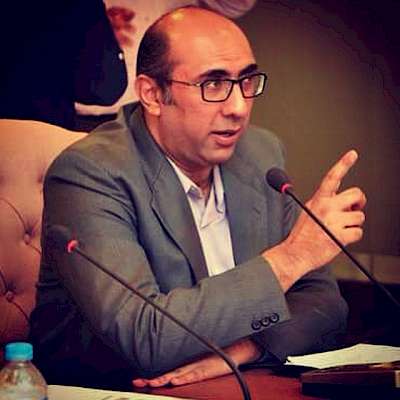 Ali Kemal, Economic Policy Advisor at the SDG Support Unit, Ministry of Planning Development and Reform, Government of Pakistan
Ali Kemal, Economic Policy Advisor at the SDG Support Unit, Ministry of Planning Development and Reform, Government of Pakistan
Mr. Muhammed Ali Kemal is an economist trained at Quaid-i-Azam University, University of Warwick and Colorado State University and groomed at PIDE. His expertise are exchange rate, International Trade and Trade barriers, underground economy and taxation, income inequality, poverty, money and inflation, inflation-growth nexus, taxation efforts, property rights and last but not the least Sustainable Development Goals (SDGs). He has done numerous field works relating to trade and industry, poverty, community organizations, health, and nutrition. Besides his research work he is active contributor in the newspapers and magazines, and a passionate teacher teaching in different universities including PIDE, NUST and SZABIST and professional institutes such as National Commission for Rural Development, Civil Service Academy, National School of Public Policy, and Foreign Service Academy.
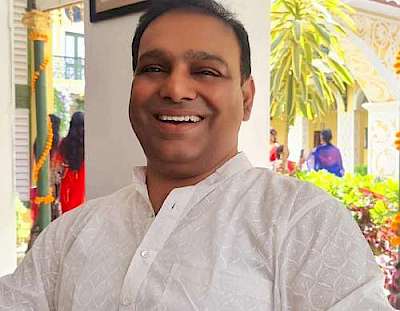
Sanjay Vashist, Expert EU SWITCH-Asia Policy Support Component
Sanjay is serving as an Expert of the SWITCH-Asia PSC on the Technical Advisory on SCP-linked NDC in South Asia. He has over 20 years of experience in climate change and UNFCCC climate negotiations. He is also serving as the Executive Director of Climate Action Network South Asia. Prior to that he worked with TERI as a Climate Change expert. He also worked as International Coordinator for Climate Action Network International (CANI) in Bonn, Germany coordinating the activities of ENGOs network also acting as focal point for ENGOs constituency of observers under UNFCCC. Academically he is a ‘Forester’ with Graduation and Post Graduation in Forestry from India. He completed his Master in Agro Forestry from Gujarat Agriculture University and Graduation in Forestry from Konkan Krishi Vidhyapeeth, Maharastra.
 Dr. Achala Abeysinghe, Asia Regional Director, Global Green Growth Institute (GGGI)
Dr. Achala Abeysinghe, Asia Regional Director, Global Green Growth Institute (GGGI)
Dr. Achala Abeysinghe is the Director and Head of Programs of Asia at the Global Green Growth Institute (GGGI). She oversees Asia operations in GGGI member and partner countries to drive green growth transition and mobilize finance for climate action and sustainable development in the region. Dr. Abeysinghe is an international climate change and sustainable development expert with over 20 years of global and national experience in the areas of strategic leadership, managerial, fundraising, and research. In 2015, as the Legal, Technical and Strategic Advisor to the Least Developed Countries Group in the UNFCCC, she played a key role in negotiating the Paris Agreement on climate change and was recognized as one of the female climate champions in the world. She has also served as lead author of the 5th Assessment Report of the Intergovernmental Panel on Climate Change (IPCC). She also worked in the Pacific as the GGGI country representative of Papua New Guinea, before becoming GGGI’s regional Director for Asia. Dr. Abeysinghe completed her PhD in International Law on Climate Change at Kent Law School, University of Kent, UK in 2010. Dr. Abeysinghe is a lawyer by training and a qualified ESG sustainability professional.
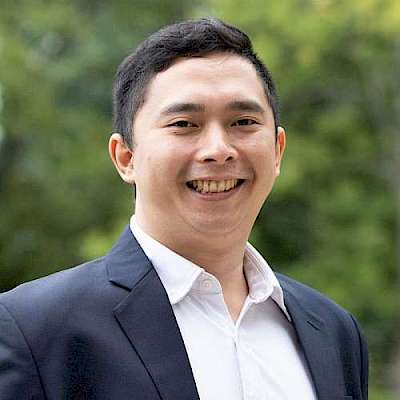
Putera Zenata (Zen), Regional Program Officer, NDC Partnership Support Unit
Zen is a Regional Program Officer at the NDC Partnership Support Unit. He supports the implementation of the Partnership’s activities related to all the stages of country engagement and knowledge strategies in Eastern Europe, Asia, and the Pacific. Prior to joining the NDC Partnership, Zen worked at UN Climate Change where he supported the Regional Collaboration Centres and organized the 2019 Regional Climate Weeks in Thailand, Ghana, and Brazil. He has also worked at the Ministry of Education in Singapore, championing climate change education and capacity-building in the country and surrounding region.
Highlights
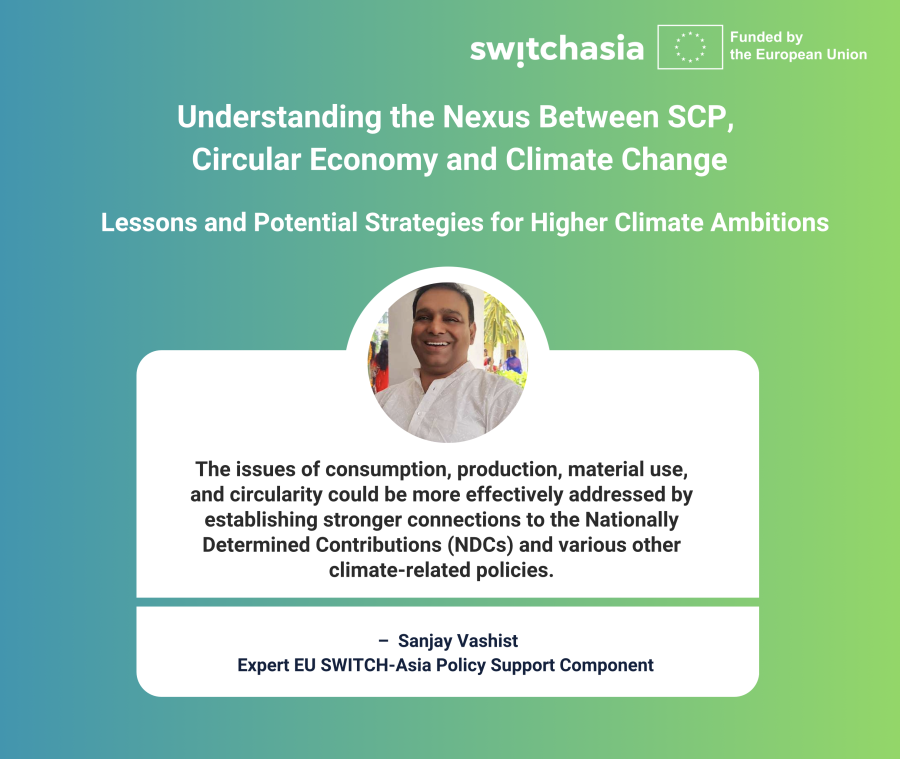
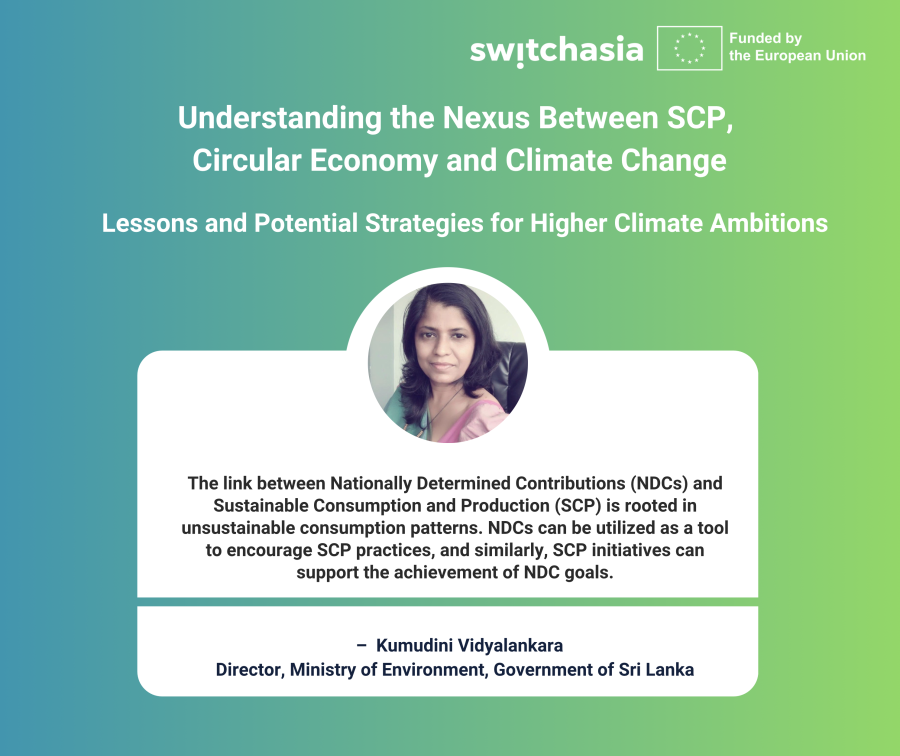
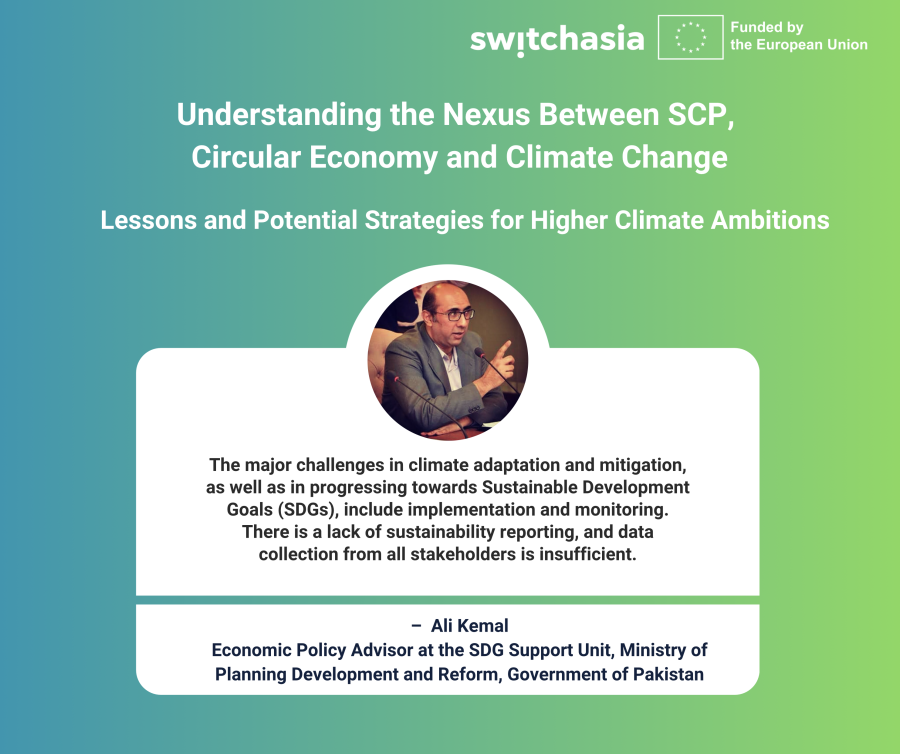
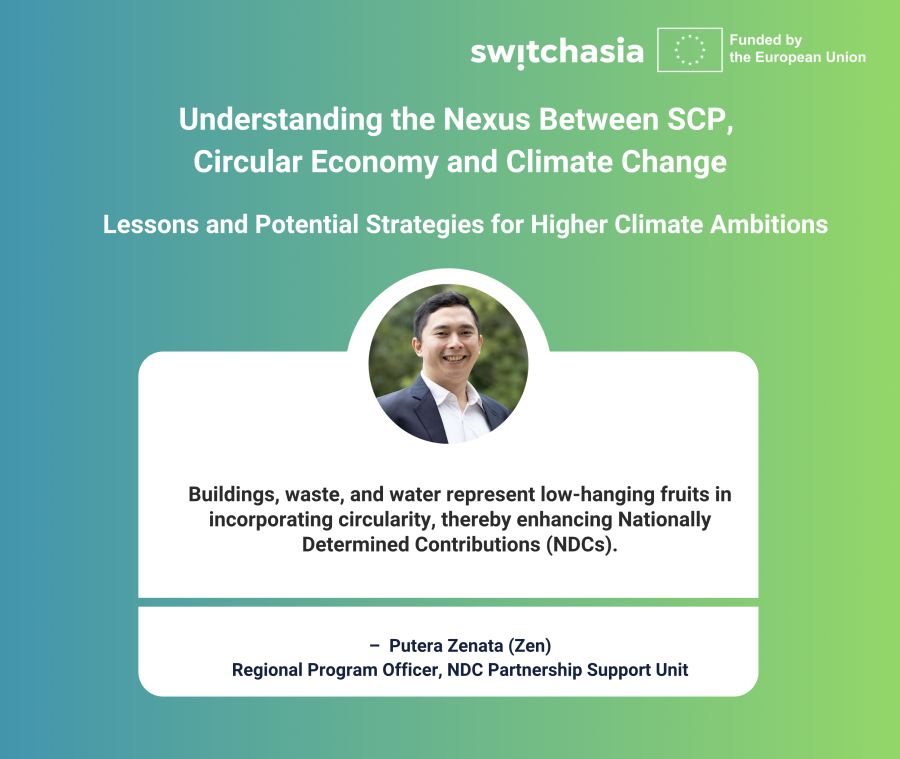
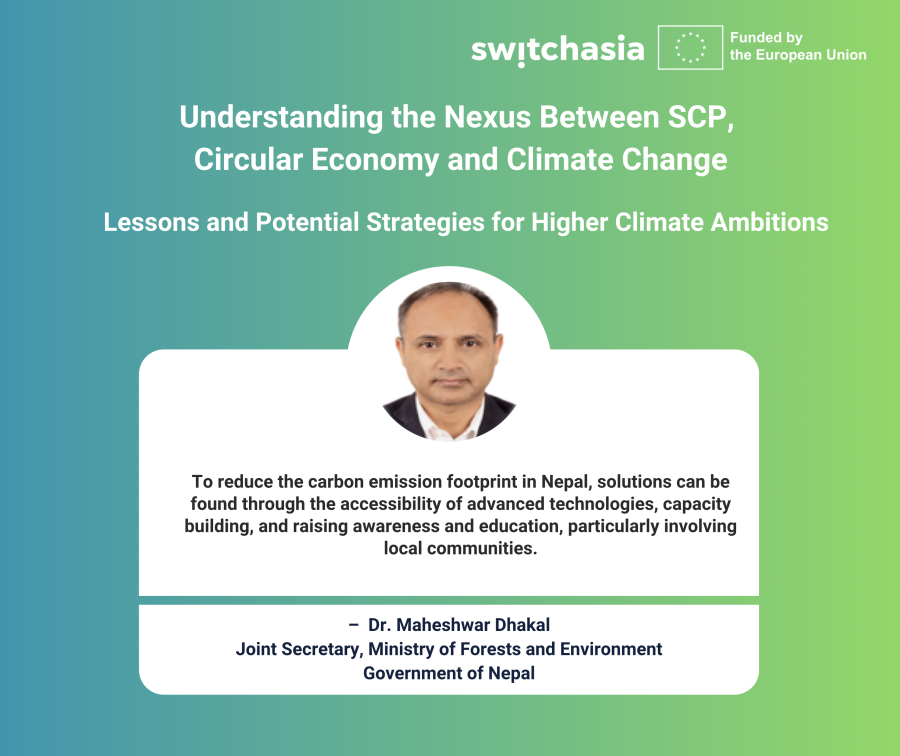
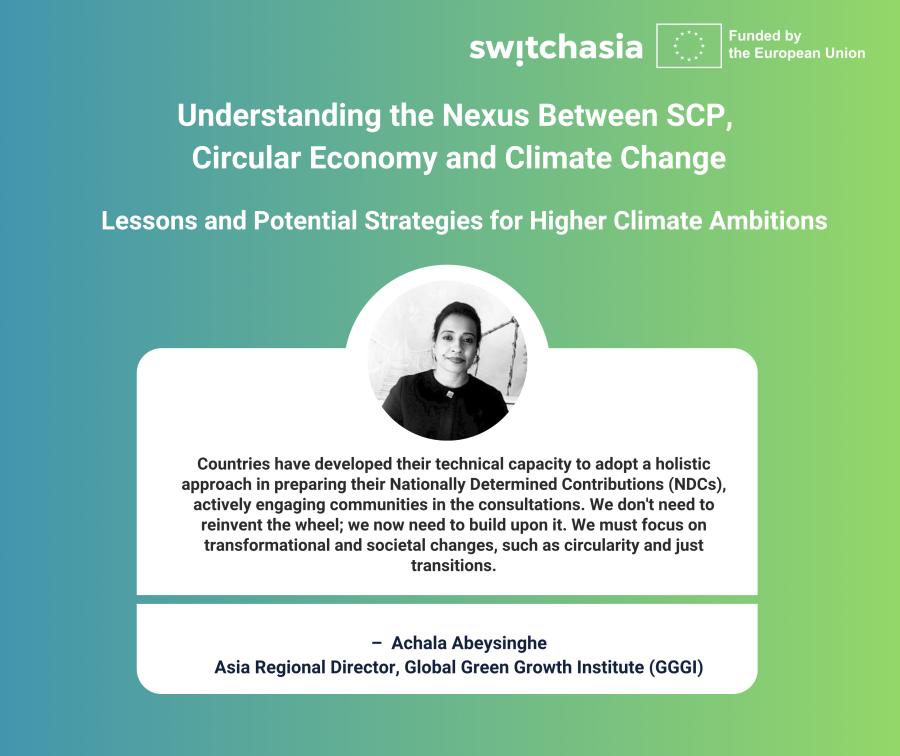
Agenda
|
Time |
Session |
|
15:30 – 15:40 |
Welcome Remarks Dr. Zinaida Fadeeva, Team Leader, SWITCH-Asia Policy Support Component (PSC) |
|
15:40 – 15:50 |
Background and Introduction to the webinar Ranga Pallawala, Expert on Climate Change, SWITCH-Asia PSC |
|
15.50 - 16:10 |
Presentation on “Reflections on SCP/CE in the current NDCs of the South Asian Countries” – Sanjay Vashist, Expert, SWITCH Asia PSC |
|
16:10 - 16:40 |
Panel Discussion Moderated by Dr. Zinaida Fadeeva, Team Leader, SWITCH-Asia PSC Panel of Government Representatives: Kumudini Vidyalankara, Director, Ministry of Environment, Government of Sri Lanka Dr. Ali Kemal, Economic Policy Advisor at the SDG Support Unit, Ministry of Planning Development and Reform, Government of Pakistan Dr. Maheshwar Dhakal, Joint Secretary, Ministry of Forests and Environment, Government of Nepal |
|
16:40 – 17:00 |
Panel Discussion Moderated by Ranga Pallawala, Expert on Climate Change, SWITCH-Asia PSC Panelists: Dr. Achala Abeysinghe, Asia Regional Director and Head of the Programmes of Global Green Growth Institute Putera Zenata, Regional Program Officer at the NDC Partnership Support Unit |
|
17:00 - 17:15 |
Q&A Wrap up |


